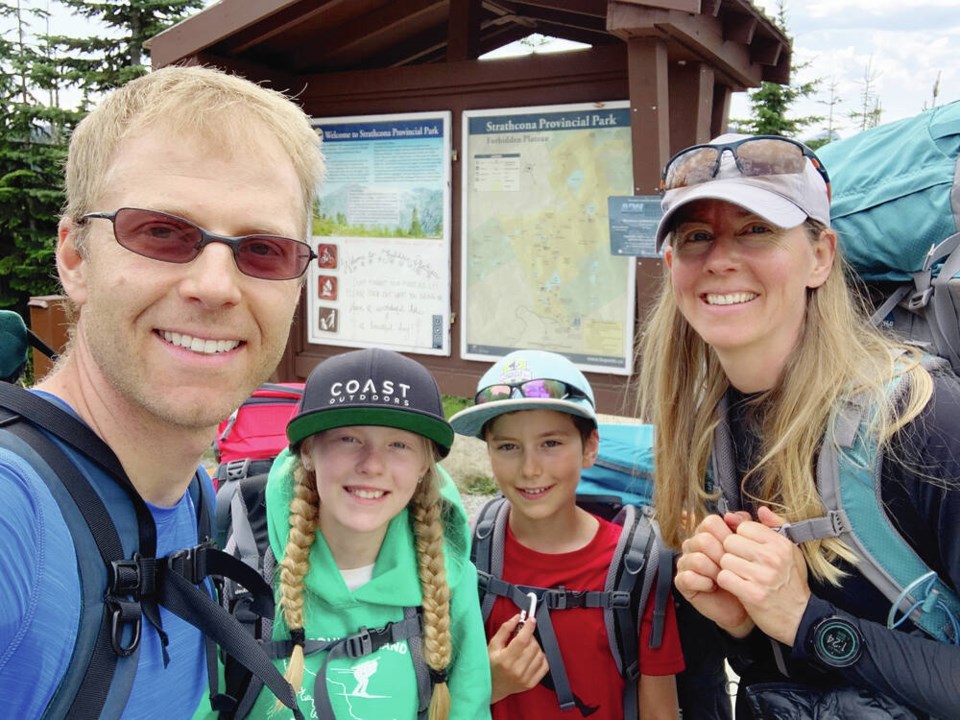The Comox Valley has recruited 44 physicians to the area in just three years, drastically reducing the number of residents without a family doctor, says the doctor and city councillor who headed up a recruitment committee.
Dr. Jonathan Kerr, chair of the doctor recruitment task force for the Comox Valley, said the number of residents in the region without a family doctor has dropped dramatically, from 14,000 in 2021 to about 2,000 — or 19 per cent to three per cent.
“That’s been a huge drop,” said Kerr. “And certainly, we’re not hearing the panic from the residents and the community that ‘Hey, I need a family doctor’ quite as much, which is great.”
It’s estimated about one million people — or one in five people — in British Columbia don’t have a family doctor.
Kerr recalls door-knocking during his byelection bid for city council in November 2021 and standing on the doorstep of a 70-year old resident who cried as she said it was her first time not having a family doctor.
Over the last few years, Kerr brought together a team of politicians, clinicians, business people and volunteers in the Comox Valley to promote the region as one where family doctors and nurse practitioners can have a work-life balance.
Kerr, 43, who formerly worked as a family doctor in Ontario, said the recruitment team seized on a “pent-up demand” of doctors wanting to start a practice after the worst of the pandemic.
The team put together a social-media campaign including a short video that featured five family doctors at various stages of their careers saying why they chose to work and live in the Comox Valley.
It also focused on trying to retain new resident doctors and emphasized the benefits of the Comox Valley not just for the physician but for their families. “It’s really about the whole person,” said Kerr.
The married father of two children, ages 14 and 15, embodies his own message. Aside from serving on council and running a family practice, he skis, golfs, hikes and camps with his family, volunteers and coaches an array of sports.
The team recruited 11 physicians in 2021, 17 in 2022 and 11 in 2023, with five more physicians arriving this year. Four nurse practitioners were also hired.
The recruitment effort was bolstered by the new physician payment model introduced by the province in 2023, said Kerr. The Longitudinal Family Physician Payment Model aims to better compensate family doctors so they can spend more time with patients who need it and have more flexibility in how they practice.
“I think as a family doctor, it’s the relationship between myself and the patient and their family that is the most important thing, that is like the cornerstone of good family practice,” said Kerr.
As well as attracting new physicians, the payment model is drawing family physicians away from walk-in clinics and back into more relationship-based family practice, he said.
“We actually don’t have a family doctor shortage in Canada — we have a shortage of family doctors practicing family medicine,” he said. “If you took every family doctor in the country that was doing a walk-in clinic medicine, and put them into longitudinal practices, we wouldn’t have any patients in Canada without a family doctor.”
Kerr said if walk-ins were eliminated, B.C. or Canada would have a better health-care system. “It’s quality over quantity,” he said.
Kerr’s successes on the Island follow a similar effort in Ontario. A decade ago, when Kerr was leaving Ontario for B.C., the Belleville Intelligencer called him “the doctor who helped recruit 19 of his peers to Belleville.”
The work isn’t over, said Kerr, who estimates six or more physicians are due to retire over the next couple of years.
He said it may take a couple of new physicians to replace each retiring physician with a full slate of patients, “so we need to keep the snowball going to make sure we have people that come in and take over those practices in the care of those patients.”
By working together, the communities of Courtenay, Comox and Cumberland — home to about 75,000 people — not only had more hands helping but avoided poaching health-care workers from one another, realizing that a physician locating in any one of those areas would help lighten the load of the region, he said.
“It’s been a real community effort, and I think everyone can celebrate that success. It’s not one person or, you know, one group that’s doing it. It’s really a community effort.”
>>> To comment on this article, write a letter to the editor: [email protected]




